Ready to start your own business without spending big? You can start selling digital products, video editing, online coaching, SaaS, and many more businesses. Read this guide to find out more ideas.
Key takeaways
- Digital products, dropshipping, and print-on-demand let you start selling without inventory or upfront manufacturing costs.
- Service-based businesses like copywriting, social media management, and dog walking require minimal investment to launch.
- No-code platforms and AI tools have lowered barriers, enabling anyone to build apps and designs without technical skills.
Bored with your 9-5? Looking for extra income but not keen on gig work? You're not alone. Sounds like you want to be your own boss.
Doing clipping, selling online courses, offering coaching services, selling SaaS, and community monetization are just five of the best low-cost business ideas.
A side hustle might start out as just a way to bring in some extra cash. But with a little effort, it can grow into something much bigger, giving you the freedom and flexibility a regular job can’t match.
In this guide, we’ll break down 42 low-cost business ideas that can help you start earning right away.
42 low-cost business ideas you can explore today
From affiliate marketing to virtual assistant work, there are plenty of low-cost business ideas that you can start without spending much upfront.
Let's take a look.
1. Selling digital products
Digital products have the potential for huge profit margins — they’re cheap to make and sell.
Once you’ve created your ebook, guide, worksheet, or app, all you really need is a place to host it and a way to get the word out. No shipping costs. No manufacturing bills. No storage headaches.
If you have specialist knowledge others would pay to access (this doesn't have to be professional), you can package it into digital products and turn those into a steady second income.
How to start:
The key is choosing a platform that fits your product, makes life easy for your customers, and handles delivery seamlessly – like Whop. Sell anything from paywalled files to full-blown apps, all in one place.
From there, it’s all about promotion. Think social media, word of mouth, posts on your blog, ads, whatever. Plus, Whop’s creator community is full of experts you can learn from to level up your business.
Read next
- Digital product strategy: Building a roadmap to create, market, and grow your digital product business idea
- Digital product niches: Finding the most profitable business ideas to kickstart your next online venture
- Digital vs physical products: What's the difference?
2. Start a print-on-demand (POD) business

Print on demand started with books, but today you can offer so much more: think mugs, coasters, T-shirts, hats, hoodies, stickers, the list goes on.
Many online store platforms now have built-in POD services, letting customers order your designs on the products they want.
And since items are only made after someone buys them, you don’t have to worry about unsold stock gathering dust.
How to start:
Create your design (use AI here if you like), upload to a POD platform, and start marketing your business online. If a design really takes off, you can reinvest your earnings into bulk printing with a traditional manufacturer to boost your margins.
You don’t need to be a pro ; to sell POD, plenty of free tools and AI-powered apps can help you create designs.
Read next
- Figma vs Canva: Which app is best for your design needs?
- The best print on demand products to explore this year
- How to start a print on demand business - the ultimate guide
3. Try affiliate marketing
With affiliate marketing, you promote other people's products and take a share of the profits from anything they sell via your affiliate link.
Affiliate marketing has minimal overhead: you set up a social media profile or start a blog covering a specific affiliate niche, and share affiliate links as part of your content.
Depending on the niche you focus on, competition can be high; however, the low startup costs make this strategy a relatively risk-free one for earning a second income.
How to start:
It still takes time to build up an audience, create sponsored content, and drive traffic to your website. But when it comes to low-cost business ideas? Affiliate marketing can be a great source of income.
If you're not sure how to get started, there are plenty of online courses available, as well as communities right here on Whop.
Read next
- Affiliate marketing 101: How to start an affiliate marketing business
- The best affiliate marketing programs for beginners: How to make a passive income now
- Faceless affiliate marketing: How to run a successful affiliate marketing business without ever showing your face
- Whop Affiliates - Earn recurring income by referring whops
4. Copywriting services
If you’ve got a way with words and love digging into new topics, copywriting can be a low-cost yet high-earning business.
But, it’s not without its challenges. You’ll need to understand each client’s brand and nail their unique voice. But get it right, and you can build a loyal client base that brings in steady, repeat work.
How to start:
To break in, explore the gig economy: platforms like Fiverr and Upwork are full of businesses looking for copywriters.
And when you’re ready to start selling? Whop makes packaging your services simple, and you’ll keep up to 97% of your earnings when clients buy directly.
Read next
- Fiverr vs Upwork for freelancers: Which platform is best?
- How to become a freelance writer (and why you should!)
- How to make money writing: Expert tips, tools, pay guide & more
5. Data entry services
Fast typing skills and an eye for detail are essential attributes for anyone interested in getting into the data entry business.
How to start:
If you possess those qualities and have access to a computer with a good keyboard, you can try data entry work as a second income. There are many companies looking for data entry workers, and most of these offer the opportunity for you to set your own hours.
This sort of work can be mentally draining if you do it for a long time, but it's a flexible option as a second income, and you can reinvest the profits to pursue other business options, too.
Read next
- Creative side hustles that pay: Ideas for every entrepreneur
- Side business ideas to explore this year: How to make up to $10,000 a month
- The cheapest businesses that you can start from home today
6. Dropshipping
Ronnie Jourv from Savage Ecom
You probably scroll through ads on Facebook and Instagram all the time. You ever wondered who's actually making money from those? It's not massive companies – it's people like you and me.
- Ronnie, creator or Savage Ecom community on Whop
Dropshipping lets entrepreneurs to sell digital products online without having to worry about maintaining stock or managing order fulfillment.
How to start:
The process is simple:
- Find a dropshipping supplier and list their products on your online store for a markup
- When a customer orders a product, you pass the order on to the supplier, who sends the product to your customer
- Pay the supplier their fee, and take the markup as profit for yourself
On paper, this sounds like a great way to make money, and it can be if you find a good supplier. However, there are some pitfalls:
Slow shipping times could earn you negative reviews. You also risk losing money on any products returned for refund or that go missing during shipping. Because of this, it's important to choose your supplier carefully.
Read next
- Dropshipping vs reselling: What is the difference?
- Best dropshipping products for beginners
- Best dropshipping niches for launching winning products
- How to find dropshipping suppliers
7. Launch a paid newsletter
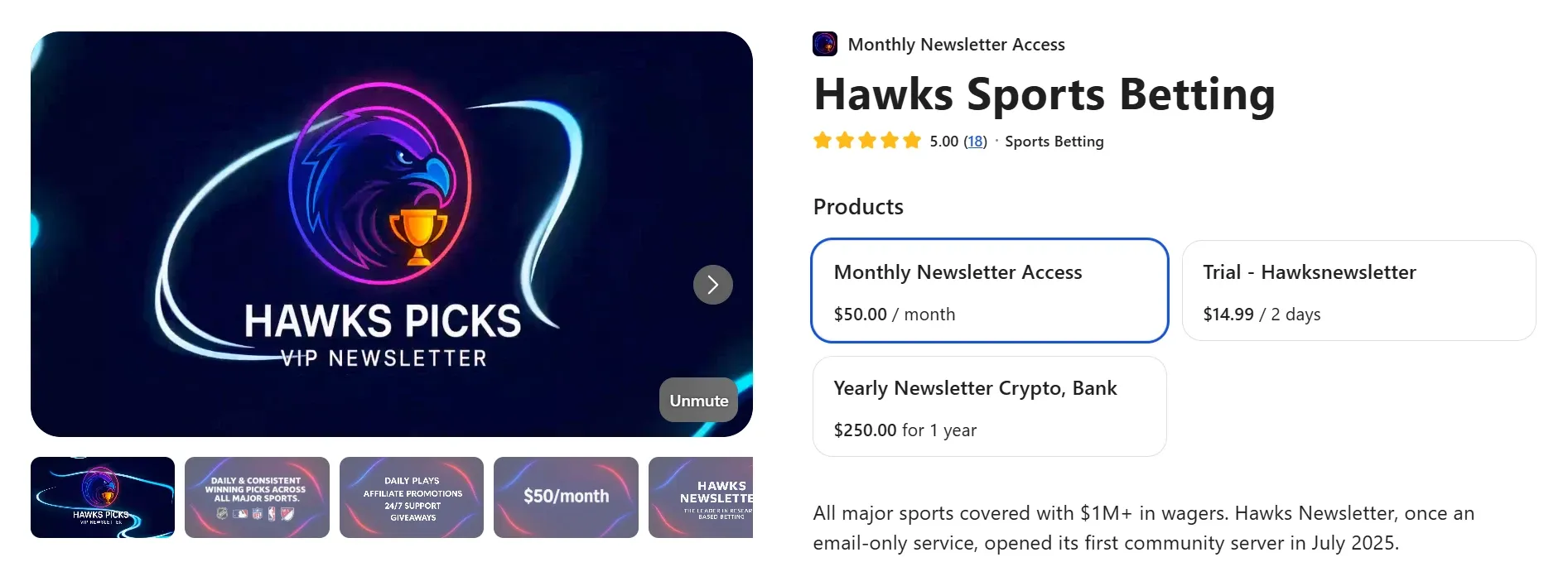
If there's a subject you're truly passionate about and that you're happy to do ongoing research into, why not offer a paid newsletter containing tips, guides, breakdowns, and news bulletins?
How to start:
First find your niche and plan out your content. Then, choose your newsletter platform. You can use a focused mailing list platform such as Mailchimp or the mailing list feature of Whop to send out messages to your subscribers.
By charging a fee per month for the newsletter, you'll earn a stable, predictable income each month in return for the work you do in sending out the information to your subscribers.
Read next
- How to create a paid newsletter
- The top newsletter ideas to keep your readers hooked and subscribed
- The best online newsletter platforms
8. Monetize a blog

Turn your hobby into an income stream by blogging about it, and offering your followers the chance to support you financially.
Today, people are used to being able to access content for free, but they'll often support their favorite creators if they offer a "pay what you want" or "buy me a coffee" option on their websites.
How to start:
Pick a blogging platform like WordPress, Medium, or Substack and start sharing your insights consistently. Add a simple donation tool or paywall your content. Share short insights on socials, and keep the lengthy posts for your paid subs.
Read next
- Blogs that make money: how to start yours and cash in fast
- The most profitable blog niche ideas (and how to monetize them)
- The best blog platforms to make money online
9. Social media manager
Being a social media manager means constant learning, trend-watching, and juggling multiple clients, so you need a system. Use planning and scheduling tools, stay proactive, and remember that transparent communication is key.
-Karina Egle from Whop
Small business owners often find themselves strapped for time or don't understand the nuances of each social media platform.
As a social media manager, you can guide brand owners and help them build engagement with content that suits each site.
How to start:
While there are some subscription-based tools that can make this job easier, you can get started for free. Begin by offering your services on freelance sites like Fiverr or Upwork, and showcase your skills by running your own social pages.
Read next
- What is digital marketing? Types, examples, and tips from experts
- Best content marketing tools
10. Dog walking

Moving away from the virtual world for a while, dog walking is another flexible small business idea that can work around a busy schedule.
How to start:
You can get started as a dog walker with zero outlay, but it's highly recommended to have insurance to protect you if a dog is injured or bites someone.
To earn more, grow your dog walking business with pet sitting services. Ask friends, family, and neighbors who may need pet sitting or dog walking services. If you only want to work locally, this can help to narrow down your target market and reduce overhead costs associated with travel.
Read next
- Creative side hustles that pay: Top ideas for every entrepreneur
- The best side hustles from home: Earn money without leaving your house
- Side hustles for students: Make money alongside your studies
11. Develop apps
You don’t need to know how to code to build a profitable app - just partner with a developer, plug the tool into your audience, and keep 70% of the revenue while they handle the tech.
Have you ever found yourself wishing that there was an app that could help you do something or automate a task you perform frequently? Sounds like you have the mind of an app-builder.
How to start:
Coding skills are useful if you want to make something particularly complex, but low and no-code systems such as Appsmith and Appian can turn anyone into a developer.
Once you've polished the app, you can upload it to your chosen mobile platform's store, and earn money either through in-app advertisements or through app sales.
Read next
- How to create apps and make money
- How to sell access to ChatGPT plugins or apps
12. Babysitting

Babysitting isn't just something that teenagers do to earn some extra pocket money.
Parents want to work with more experienced babysitters, especially if they have very young children or kids who need a little extra support.
How to start:
It's a good idea to invest in insurance, along with a background check, to make yourself more marketable to prospective clients. Once those things are in place, you'll have the opportunity to earn a steady income from regular clients and make memories with the children, too.
There are a bunch of platforms you can join to find babysitting gigs, such as UrbanSutter, Sittercity, and Care.com.
13. Become a virtual assistant (VA)
Being a virtual assistant lets me work from home, choose flexible hours, and help CEOs and companies by taking tasks off their plate. Over time, you get faster at spotting problems and creating workflows, which means you can serve more clients - or spend more time on yourself.
-Matthieu Ratrimoson
Virtual assistants handle phone calls and emails for their clients, manage appointment bookings, and take on small day-to-day clerical tasks.
Some VAs take on just one client and work part-time. Others take on multiple clients and do it as a full-time job, making it a great remote business idea.
How to start:
If you're new to the industry, you can get your first clients by joining a VA agency. Once you gain experience, you can strike out on your own and look for private clients to maximize your earning potential.
Working as a VA gives you some freedom, as you can choose clients who are looking for hours that match your schedule.
14. Video editing
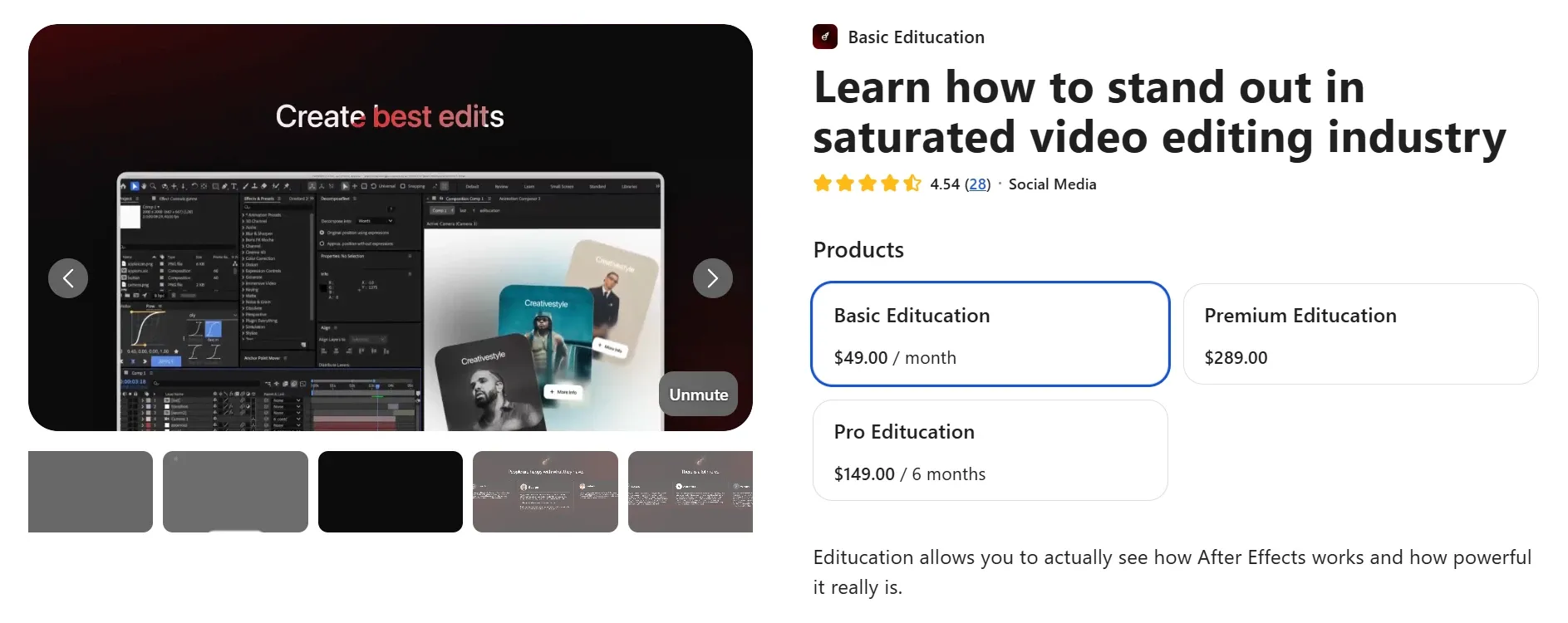
Camera phones mean anyone can shoot some action footage while they're on a day out, or at a sports event. But, turning that rushed camera work into something appealing isn't as easy as it seems.
If you have the software and skills to cut and edit footage, why not offer your services to aspiring actors, small businesses looking for advertising clips, and influencers?
How to start:
You can get started with free, open-source software and a platform to host your portfolio on.
Read next
- How to become a YouTuber and get paid: the complete guide
- The best free video editing tools for creators: Which one should you use?
- InShot vs CapCut: What's the best free video editing software for creators?
15. Become an online personal trainer
As a personal trainer, you get the opportunity to create a bunch of different revenue streams based off of what clients need - whether that be face-to-face, online, or just programming.
- Danni, Personal Trainer at Jetts Australia
Online personal trainers help people who don't have time to go to the gym for scheduled workout sessions, sharing workout programs with clients from all over the world.
How to start:
You can offer online PT services video chats or with apps like as PT Distinction. Or, create a fitness coaching whop and add the apps you need to build your business.
To get noticed in the crowded personal trainer space, you'll need to offer something that makes you stand out. That could be a specific specialism, such as prior success as a powerlifter or CrossFit athlete, or it could be a compelling weight loss success story.
Think about the demographic you're targeting, and tailor your marketing efforts to that demographic.
Read next
16. Stock photography

If you own a high-resolution camera and have a talent for taking appealing photographs, why not list some of your best shots for sale?
How to start:
Take your photos, edit as you wish, and upload to stock photography platforms. Stock photography platforms such as Pexels and Unsplash provide free and premium stock photos for bloggers and designers to use.
Most platforms offer commission rates of between 15 and 30%, although some of the higher-end platforms offer better rates than this for exclusive, high-quality submissions.
17. Landscaping

For those who like working outdoors and have a green thumb, landscaping can be an enjoyable business opportunity.
How to start:
You will need some tools and suitable clothing, but if you already have those things from personal projects, you can use them to do freelance work in your local neighborhood and earn some extra income.
Put ads up on Facebook Marketplace, Craigslist, and Airtasker, and ask friends and family to refer you on for work.
18. Virtual event planning

Do you have good organizational skills and the ability to think of everything? If so, why not turn your hand to virtual event planning?
From securing suppliers to managing ticketing and invites, event planners are always busy and can become indispensable to brand owners, especially if they prove themselves to be reliable.
How to start:
Create your portfolio, set up a landing page, and start reaching out to business owners. Getting your first gig might require some networking skills, but once you have a good reputation, clients will come to you.
You can manage your virtual business online with Whop.
19. Editing and proofreading

If you've ever written a blog post (or even a college essay) and then noticed a little too late that there were some spelling errors in the document you submitted, you'll understand why editors and proofreaders are so important.
No matter how careful you are as a writer, you'll probably overlook your own typos and awkward phrasing, because your brain knows what you wanted to say, and "fills in the gaps" when you read your work back to yourself.
How to start:
If you're good at spotting other people's mistakes, make money online by offering your services as an editor or proofreader. Create a small portfolio by editing friends’ essays or blog posts, then list your services on sites like Fiverr or Upwork.
As you gain experience, pitch to bloggers, authors, and small businesses who need affordable editing help.
20. Monetize a podcast

If you already run an audio or video podcast, there are plenty of ways to turn your content into income.
How to start:
The simplest way to make money with podcasts is by selling ads for before or during episodes. But the bigger opportunities often come from podcast sponsorships, affiliate links, or promoting products on your show.
The catch? The above methods only work when you already have a sizable audience. That’s why one of the most effective ways to earn from a podcast is by giving your listeners a direct way to support you through a paid community.
Podcasts feel personal, offering listeners a peek into someone else’s world. By building a behind-the-scenes VIP community, you can turn casual listeners into loyal supporters who’ll pay to be part of something exclusive.
Read next
- How to monetize a podcast
- How to start a podcast: Step-by-step guide
- Standout podcast topic ideas
21. Create a paid community
The secret to building a profitable online community is simple: only create content you'd actually watch, and choose a platform that handles both engagement and payments - so you can focus on scaling sales without high upfront costs.
Now, we've just mentioned starting a community for your podcast, but you can create a paid community for just about anything.
How to start:
Use your social and community management skills to bring people together in an online community. Say you like knitting - teach people how to knit with a virtual knitting club!
Whatever your special interests, there's a good chance there's an appetite for an exclusive, well-moderated group where people can share their thoughts and experiences.
Using platforms like Whop, you can create a community with chat, live videos, image sharing, giveaways, premium content, and paid memberships, giving you a sustainable income and your followers a safe and fun place to communicate.
Read next
- How to make a community website for free (a guide for online creators)
- Mastering community management: How to build and manage a thriving online space
- How to monetize a community: Ultimate guide
22. Online tutoring
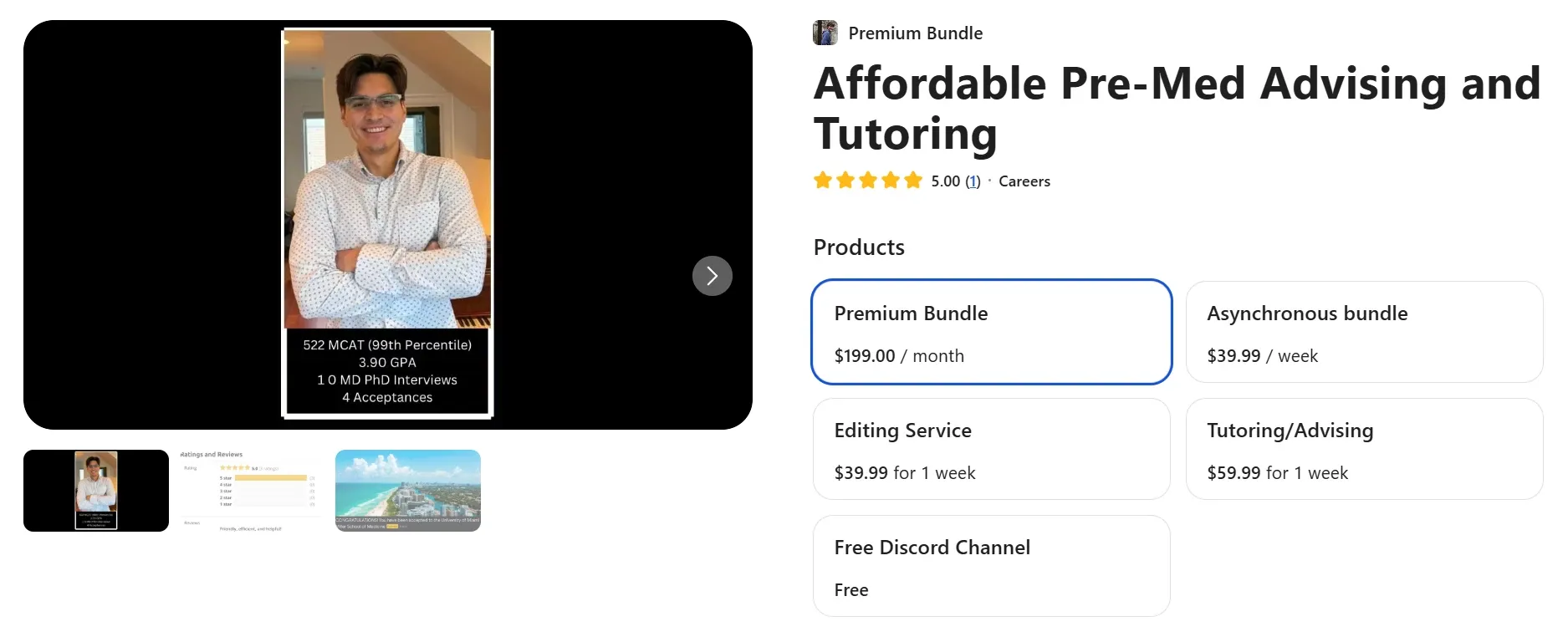
If you’re skilled in languages, maths, or science, online tutoring can be a flexible and rewarding way to earn. Students of all ages are looking for tutors who are patient, clear, and good at breaking down complex topics.
How to start:
Some tutoring platforms let anyone sign up, with student reviews guiding future bookings. Others have stricter vetting processes and may require proof of your qualifications before connecting you with learners.
You can also go solo: advertise your services online and in your community, and host your business on Whop. With built-in chat, video, file sharing, and payment processing, Whop has everything you need to run a seamless virtual tutoring business.
Read next
- How to become an online tutor in 5 simple steps
- How to teach English online: A step-by-step guide
23. IT support services
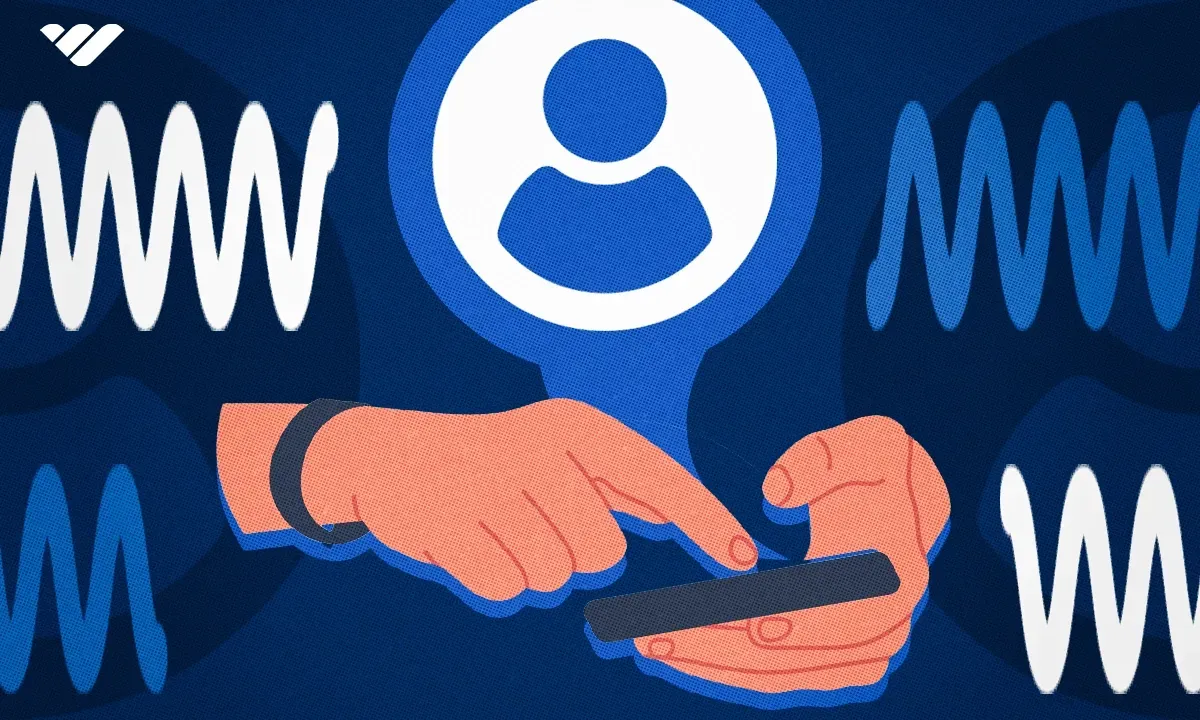
IT support is a flexible business opportunity, and there are several ways to get into the industry.
How to start:
You can work as a freelancer for an outsourcing company, taking shifts as and when you please and being paid per ticket solved. Alternatively, you can advertise directly to clients and answer their questions directly.
The latter option has a higher earning potential, but means you have to be available to help your clients on an ongoing basis, which could be an issue if you'd like to be able to travel.
24. Sell digital art
Your first customers will probably be friends and family, but one of the best ways to get noticed is through fan art - reimagining popular characters or brands in your own style.
It attracts existing audiences, and sometimes even the brands or celebrities themselves will share or buy your work.
-Karina Egle from Whop
Turn a talent for graphic design into an income stream by selling your artwork.
There's demand for all kinds of art, from desktop and phone backgrounds to Telegram stickers, pixel art, vector images, and 3D models.
How to start:
You can sell one-off commissions or make graphics packs and sell them with a license so designers can use them in their apps and games.
Heaps of digital art marketplaces allow designers to list their packages for sale. Once you've developed a name for yourself and earned a social media following, you can focus on commissions or sell products through your own website (or your whop!).
Read next
- How to make money as a digital artist
- Creative side hustles that pay: Ideas for every entrepreneur
25. Become a digital stylist

If you’ve got an eye for fashion, digital styling can turn your talent into income.
How to start:
You can work with clients in different ways, by asking them to share photos for feedback, or jumping on video calls to guide them through their wardrobe choices in real time.
If you’re comfortable with tech, apps like Stylebook make it easy to create virtual outfit boards so clients can see exactly how your suggestions would look.
For multiple income streams, host your business on Whop: sell ebooks with style tips, offer one-on-one video sessions, run a subscriber-only chat, or create beginner-friendly styling courses.
26. Sell webinars and workshops
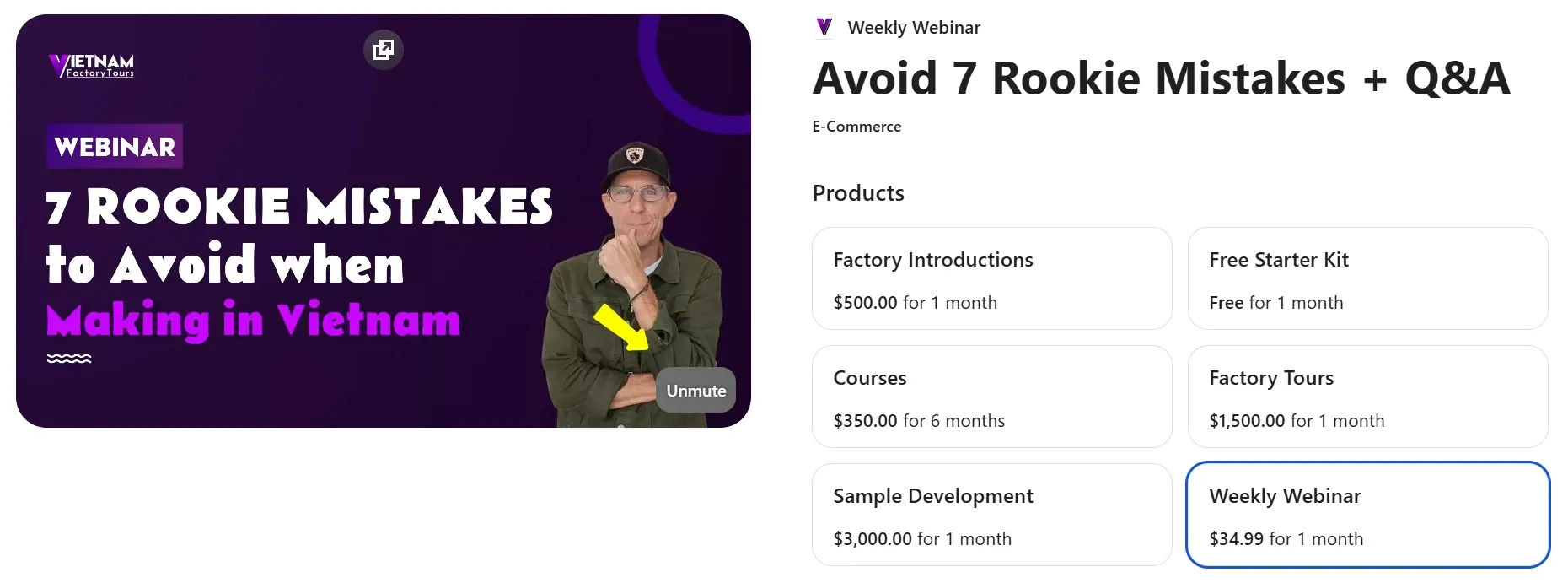
Working with clients one-on-one can be rewarding, but it doesn't scale very well.
Webinars and workshops allow you to deliver your material to a larger group of people and reach a higher hourly rate. Work smarter, not harder.
How to start:
To deliver webinars, you'll need a computer with a webcam and microphone, a reasonably fast internet connection, and a suitably quiet space to host the session.
Zoom allows people to host free meetings, but these are limited in duration. When you set up a whop, you can install a variety of community features for chat, audio, and video calling, enabling you to work with a large number of clients more easily.
Plus, you can also use the Files app to share notes and transcripts after the webinar.
Read next
- How to make a webinar: Everything you need to know about creating, hosting, and monetizing your webinar
- Webinar examples: Get valuable inspiration for your next online event
- How to use the Webinars app on Whop
27. Provide graphic design services

Logos, flyers, infographics, and social media headers are always in demand, and there are free open-source graphic design tools out there that you can use on any phone or computer – no artistic skills needed.
How to start:
Tools like as Canva are easy to use and help even beginners make work that would impress someone who isn't tech-savvy. If you are a skilled designer, you can offer truly custom services for a higher price and pursue bigger clients.
Earn money while building your portfolio on Fiverr, and branch out to freelance job sites, personal contracts, or the Whop marketplace.
Read next
- How to sell templates on Canva
- How to sell Canva templates on Etsy, Whop, and more (complete guide)
28. Do handyman work

The tradespeople industry is expected to be worth $1.8 billion by 2033.
If you've got the knowledge to tackle odd jobs around the house, why not freelance as a handyman?
Apps like Taskrabbit and BrightNest enable individuals to pick up ad-hoc work as a tradesperson and are an easy way to build up a good reputation in your local area.
Some workers choose to stay on those platforms long-term because of the ready-made audience of clients they offer. Others branch out to deliver services directly or start their own businesses.
Read next
- How to make money on TaskRabbit: Side hustles to start right now
- Airtasker review: Are Airtasker jobs worth your time?
29. Online coaching
College kids are making a significant amount of money showing the older generation how to use technology — specifically AI and social media.
This a pain point that you can solve and get paid for, and you don't need to be an expert— you just need to be a few steps ahead.
- Tech coach
From trading tips to life coaching—or even tech coaching like the creator above—people are always looking for someone more experienced to support and guide them.
How to start:
Choose your coaching niche. Whatever you have experience in, you can share it with online coaching. Life-coaching services, relationship advice, small-business coaching, fitness coaching – there's a niche for everyone.
Then decide where you want to host your online coaching. Whop is the perfect place for coaching businesses. With chat, video calls, calendar integrations, and file sharing, your whop is the perfect place for your coaching business.
Read next
- How to start a profitable online coaching business
- How to price your online coaching packages and hit 6 figures with ease
- Lucrative coaching niches
30. Become a vacation planner

If you love researching travel destinations and hunting down the best deals, vacation planning could be your ideal side hustle. Planners help clients create their dream holidays: booking flights, hotels, tours, meals, and day trips to make the experience seamless.
How to start:
Becoming a hosted travel agent typically costs around $500, giving you access to booking systems and flight databases that can save clients serious money and give you a competitive edge. You can also take a more informal approach, sharing travel tips, packing lists, itineraries, and destination guides as a travel blogger.
Whichever path you choose, you can package and sell your vacation plans, resources, and services through Whop.
Read next
- How to become a luxury travel agent (and why you should)
- How to make money as a travel blogger
31. Sell online courses
Creating an online course can become a reliable source of ongoing income.
Many course hosting platforms will sell your content for a commission, taking care of delivery, quizzes, and even certificates for your students.
How to start:
Start by researching a niche and outlining your course content. If your course is text-based or uses screen recordings, your upfront costs can be almost nothing (provided you already have a computer and a stable internet connection).
For video courses, it’s worth investing in quality recording equipment or hiring someone to film, so your materials look professional and keep students engaged.
Whop offers free course hosting and only takes a small commission when you make a sale. You can also bundle your course with a community, forum, live calls, or digital downloads to give students extra value.
Read next
- How to create an online course to sell
- How to create and sell courses on Whop
- 200+ online course ideas across all niches
- How to create an online community for your course
32. Monetize a YouTube channel
Leroy ter Braak from Creators United
You don’t need a viral hit to change your life on YouTube. What you need is a repeatable system, because the algorithm doesn’t reward effort, it rewards demand.
-Leroy ter Braak from Creators United
If you’ve built a successful YouTube channel, it’s worth seeing if you qualify for the YouTube Partner Program.
How to start:
To join, you’ll need at least 1,000 subscribers and either 4,000 public watch hours in the past 12 months or 10 million YouTube Shorts views in the past 90 days.
Those numbers might sound high, but for committed creators, they’re achievable. Once you’re in, you’ll earn a share of the ad revenue from ads shown on your videos.
If you’re not yet eligible (or you want to explore higher-earning opportunities), consider sponsorships, selling digital products, running a paid community, or using affiliate marketing to monetize your YouTube content.
Read next
- How to monetize a YouTube channel
- YouTube Studio: The ultimate beginner's guide to what YouTube Studio is, how to find it, and how to monetize it
- Monetize a YouTube channel with Whop, without waiting for the YouTube Partner Program
33. Web development

Before SEO comes into play, businesses need a website to optimise.
With social media channels multiplying, many companies are refreshing their old sites to be more mobile-friendly, intuitive, and interactive – even restaurants are turning websites into digital menus and ordering platforms.
How to start:
You can get started with just a laptop and open-source software. When your site is ready, you’ll need to upload it to a web server, but if you’re bootstrapping, you can develop it locally and include server costs in your client’s fee.
Read next
- Streamlining codebase and deployment: Three open-source packages
- How to convert Figma to WordPress, HTML, or other platforms
- Webflow vs Framer: Which website builder is best?
34. SEO consulting
The best way to get started in SEO is simple: buy a domain, set up WordPress, and start testing what works. Even if your first few websites fail, you’ll learn fast - and that hands-on experience gives you a huge leg up when applying for SEO jobs or internships.
-Colin McDermott, head of SEO at Whop
SEO is big business – Emergen Research projects the industry will hit $157 billion by 2032, growing at 8.7% annually.
Can you tell your META tags from your ALT tags and know your way around keyword research tools and analytics dashboards? Then you can turn that knowledge into a side business.
Just remember, SEO isn’t a set-and-forget task; it needs ongoing work. Do it well, and you’ll build long-term client relationships that deliver a steady income.
How to start:
You can offer SEO services as a consultant, freelancer, or contractor, with nothing more than a website (or a Whop) to get started. Over time, you can expand into paid communities, online courses, or one-on-one coaching to diversify your income.
Read next
- SEO for affiliate marketing: A beginner's guide
- Shopify SEO: Game-changing tips to supercharge a store
- Semrush vs Moz: What's the best SEO tool?
35. Mastermind groups

Mastermind groups are like online coaching, but instead of you leading the learning, the group collaborates and shares ideas.
How to start:
You can take an active role as a facilitator, using techniques like action learning to guide discussions, or a more hands-off approach and let the cohort drive the conversation.
These groups are low-cost to run; all you need is your time and a platform to host the session.
Whop communities are perfect for this, letting you vet participants, post icebreakers, and manage calls. Hosting your mastermind within a community gives your offering a polished, professional feel.
Read next
- What are masterminds? Everything you need to know about mastermind groups
- How to create a thriving mastermind group: The steps for success
- How to run a mastermind session on Whop
36. Transcription services

Starting a transcription service is both a low-cost business idea and a profitable one.
How to start:
Businesses, creators, and podcasters constantly produce audio and video content that needs transcribing for blogs, captions, or accessibility. All you need to get started is a laptop, a good headset, and reliable transcription software.
This type of business allows great flexibility since you can work at your own pace from anywhere, on your schedule, which means this business venture has plenty of time to grow alongside a 9-5.
Read next
- Top ways to make money on your phone
- Best side hustles from home
- Passive income vs active income: What's the difference?
37. Resume writing services
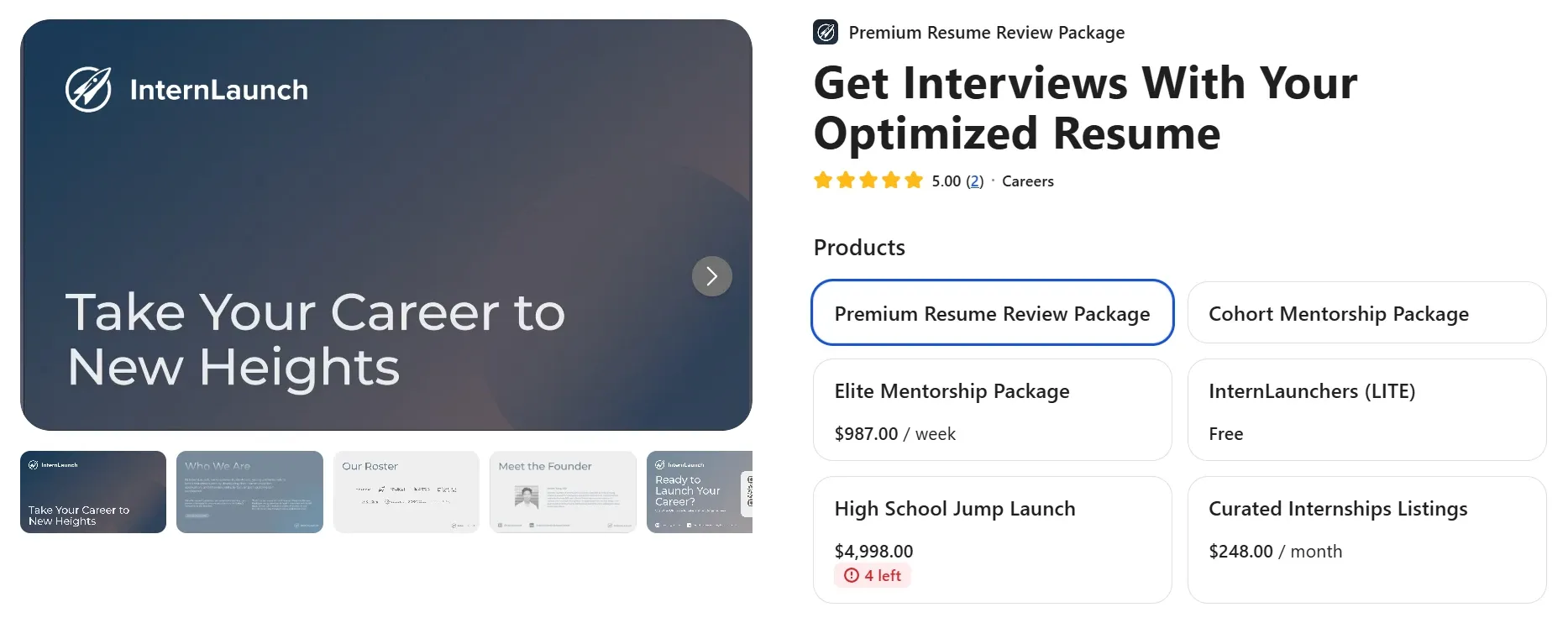
The job market is more competitive than ever, which makes standing out essential. That’s where you come in.
How to start:
Offering resume writing services has minimal overheads, especially if you already have a laptop, letting you charge premium rates as you gain experience.
Clients are willing to pay for quality resumes because they directly impact career opportunities. With strong writing and industry-specific knowledge, you can build a loyal client base (and even expand into related services like interview coaching).
Whop makes packaging and selling your services simple, so you can set your prices, deliver your work, and grow your business with ease.
38. Podcast editing

Podcasts are booming, but not every podcaster has the time or skills to edit episodes, which leaves plenty of scope for editors to take this task off their plate.
Offering podcast editing services allows you to leverage growing demand with very little upfront cost - just a reliable computer, editing software, and headphones.
How to start:
Some podcasts are audio-only, while many choose to add video to their content for extra shareability on social media. Initially, free software will do just fine for editing audio. As your client base grows, you can reinvest in premium tools to streamline production.
Read next
- The top podcast monetization platforms revealed
- How to film a podcast like a pro: Essential tips for beginners
- Spotify for podcasters: Complete review and tutorial
39. Bookkeeping services

Small businesses frequently need help keeping their books in order, providing an opportunity for those who are very detail-oriented and organized.
How to start:
First, get your resources together. Bookkeeping software like QuickBooks or Xero is affordable, and beyond that, the only startup costs are your time and accuracy. Then, start networking online in business groups.
You can package your services on a subscription-based model right here on Whop, or advertise your services on gig platforms like Upwork.
40. Personal shopper

If you have great taste, becoming a personal shopper can turn your fashion sense into income.
How to start:
You can provide shopping assistance online or locally, finding clothes and accessories that fit your clients’ needs and budgets.
Plus, you can easily grow this business idea online using a Whop community, offering styling advice, seasonal recommendations, or even product reviews that generate affiliate income.
41. Teach AI skills
"We teach people how to build automations for businesses using a tool called n8n— it's kind of like building little robots that do the boring tasks for companies like emails, lead generation, and DMs".
- Jovan, AI Creators Club
Help businesses and individuals learn how to use AI tools. From teaching small business owners how to use ChatGPT for content creation to helping entrepreneurs understand how to use AI automation in their operations, there's huge demand for practical AI guidance.
How to start:
You don't need to be a tech expert – just stay ahead of the curve by learning popular AI tools like ChatGPT, Claude, Midjourney, and automation platforms.
Start by offering one-on-one coaching sessions or group workshops where you teach people how to integrate AI into their daily work.
42. Voice-over services
Voice acting is one of the most overlooked but powerful side hustles out there, and you can get started right from home. You don't even need a full studio setup for this — all you need is a quiet room, a decent USB microphone, and free recording software.
Turn your voice into a revenue stream by recording narrations for audiobooks, commercials, online courses, and video content. You can make professional recordings from the comfort of your own home with surprisingly minimal equipment.
How to start: You'll need a microphone, audio editing software, and a quiet recording space (even a closet works well for soundproofing). C
Create a demo reel showcasing different styles – from conversational to authoritative – then market your services on freelance platforms or directly to businesses.
Ready to take the next step? Businesses on Whop earn over $1 billion every year. Let's build yours now.
How to choose the right low-cost business idea
Now that you’ve explored a range of business ideas for breaking free from the 9–5, the real question is: which one should you chase?
Here are a few key things to keep in mind as you narrow down your options:
What skills do you have?
Most online businesses are knowledge-based.
Are you a strong graphic designer, coder, or communicator? Do you have expertise in specialist software like AutoCAD or Blender? Can you teach a subject or speak another language?
Focusing on your strengths (and what you enjoy doing) will help you identify viable ideas.
What equipment do you have?
While many online businesses need minimal equipment, some tools are essential. Examples include:
- Webcam and standalone microphone
- Headset for calls
- Desktop or laptop with mouse and keyboard
- Graphics tablet
- Fast internet
- Digital camera or lightbox
If your business involves private calls or coaching, a quiet space is also essential.
You can bootstrap in most cases, for example, starting with simple mobile designs and reinvesting profits into higher-quality equipment later.
What are your goals?
Every entrepreneur’s journey is different.
Some want to grow a large business and hire staff, while others aim for a lifestyle business that covers bills and allows flexible hours. Some online ventures may remain side gigs, and some may scale over time.
Knowing your long-term goals will shape how you approach your business.
What is your budget?

It's possible to start an online business with nothing more than the device you're using to read this article.
But, you'll be able to grow more quickly if you have a budget for tools, marketing, and other expenses. For example:
- Virtual assistants might invest in training courses.
- Graphic designers might pay for a domain, website, or social media ads.
Consider how much you can spend and what ROI you expect.
Read more about how much it costs to start a business.
Who is your target audience?
Understanding your ideal customer lets you target marketing effectively. Create buyer personas to map out different types of customers.
For instance, a personal trainer might have:
- Young, competitive athlete: Gym-goer looking for customized workouts; less interested in add-on products.
- Older, affluent adult: Home workouts, nutrition courses, and premium add-ons make them a high-value customer.
Remember, you’re not just selling a product, you’re selling the outcome. For a personal trainer, it’s not just workouts. It’s “a healthier, happier you.”
For a virtual assistant, it’s “more time and less stress.”
Once you can identify what it is about your product or service that's the most desirable to your target customers, you're well on the way to launching a successful business.
What is a target persona and how do you create one?
How will you sell your products?

Decide whether you’ll self-host or use a SaaS platform.
- Self-hosting can be cheaper if you already have a website, but it requires technical know-how and time to maintain. It can also make marketing harder.
- Using a platform removes technical hurdles but may have downsides like monthly fees, limited features, and variable sales commissions. Always read the small print so you know exactly what you’ll earn.
Why Whop is the best platform for your online business
You may have noticed that many of the business ideas above can be run online — and for good reason.
Online businesses have lower overhead, most can be started with little to no investment, your reach goes far beyond a local setup, and margins are often higher than traditional options.
For most entrepreneurs, online is the smartest place to start. It’s affordable, scalable, and profitable — a triple win.
The real challenge is turning an idea into something people can actually buy. That’s where Whop comes in.
On Whop, you can sell all kinds of offers — from ebooks and apps to coaching sessions and local services. You can take bookings, host courses and communities, run memberships or online events, and set up pricing however you want, whether that’s one-time purchases, packages, or subscriptions.
Best of all, there are no upfront fees. You can launch unlimited store pages, showcase unlimited offers, and keep up to 97% of your earnings.
Start your low-cost online business today

Start your journey to independence by launching a low-cost online business today.
Join today for free, and see for yourself why millions of entrepreneurs choose Whop for their online business.



